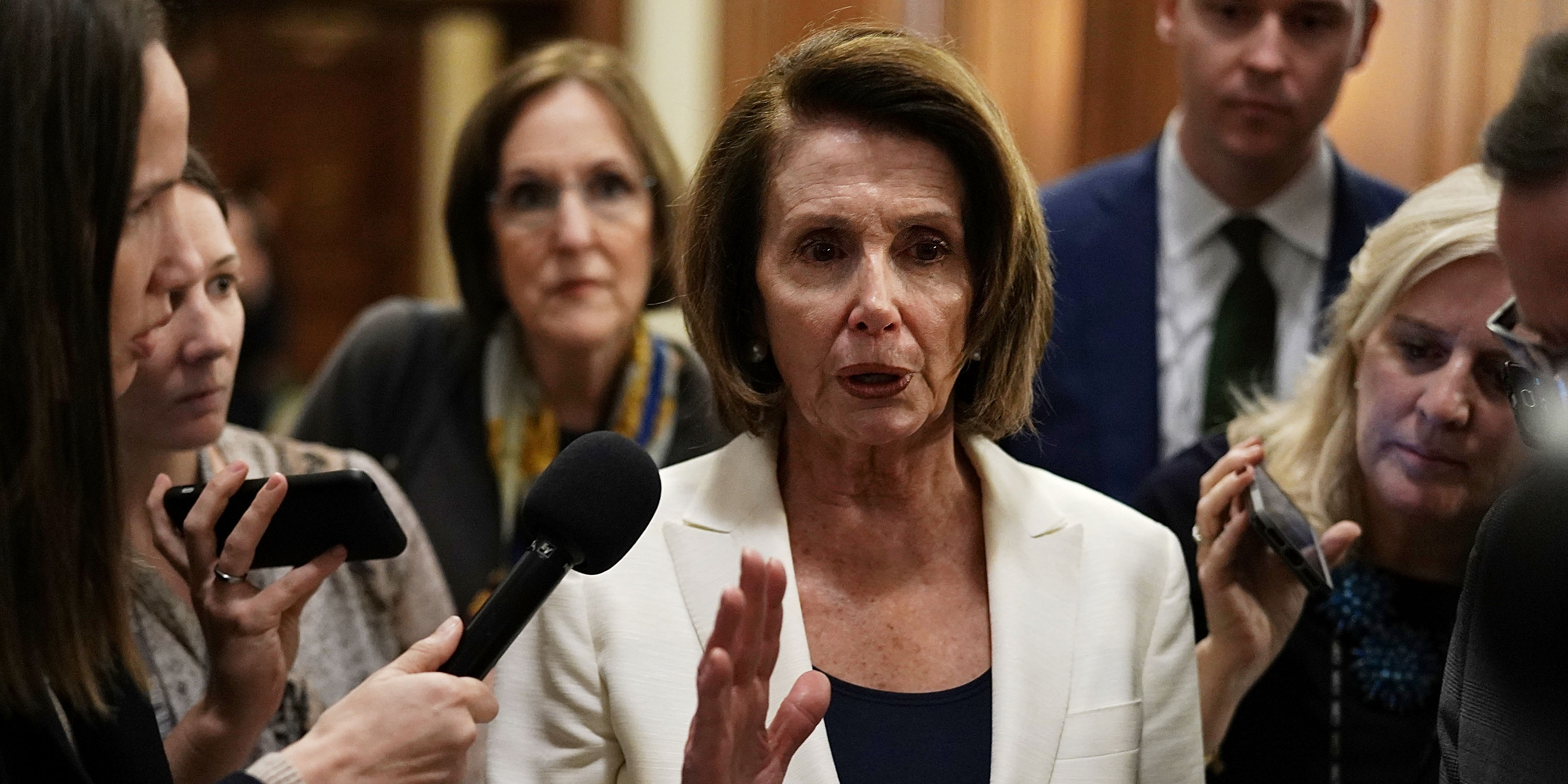- The Republican tax law is gaining in favorability in the latest polls.
- Democrats are trying to balance criticisms of the law with the economic benefits.
- Some Democrats expressed disappointment in party leaders referring to bonuses and increased take-home pay as “crumbs.”
WASHINGTON – Because of substantial wage growth, bonuses, and other positive economic factors, the Republican tax law is gaining in popularity with the American public after initially negative reviews, which is becoming a problem for Democrats looking to run on a cohesive economic message in 2018.
The law’s increasing favorability prompted the Democratic super PAC Priorities USA to circulate a memo detailing the threat it poses to Democrats in terms of messaging.
“When voters have heard messages from both Democrats and Republicans on the tax bill, Democrats have won,” the memo read. “Unfortunately, that debate has been relatively one-sided recently and voters have not heard nearly as much from Democrats.”
The memo also cited internal polling showing traction in both the tax law's favorability and President Donald Trump's economic policies as a whole.
Further, a Morning Consult/Politico poll released Wednesday showed that Republicans have surpassed Democrats on the generic ballot, with economic policies being a driving factor.
Democrats want to show that certain Americans receive larger benefits than others
Democrats are left with few options to counter the Republican narrative that the GOP-led economy is working. On the tax bill specifically, Democrats want to highlight the disparities between individual cuts for middle income Americans and for corporations and high earners.
Rep. Linda Sanchez, who serves as the vice chair of the House Democratic Caucus, echoed to reporters on Wednesday the "crumbs" line from House Minority Leader Nancy Pelosi.
"I would just add that all along I've been telling people you may see a small benefit from the tax bill initially, you may get a shiny new dime or nickel and they may say, 'Look this is your benefit that you get out of this tax bill,' while the wealthiest Americans and multinational corporations are shoving hundred dollar bills in their pockets and they're laughing as they walk out the door," Sanchez said.
"Because if you look at the comparison, yeah, getting a nickel or dime is better than not. But if you look at who gets the bulk of the benefit, corporations, wealthy individuals, they got the whole loaf of bread and you got, yeah, crumbs."
Sanchez noted that bonuses corporations are doling out to employees are "one-offs" and do not translate to permanent wage growth.
"And so again I think that Americans, when they have all this information put in front of them, are going to understand just how far the president and Republicans have gone to disadvantage the middle class - the very people who they promised to be champions for," she said.
Though wage growth is increasing at its fastest rate since 2009, House Democratic Caucus Chairman Joe Crowley expressed the same sentiment as Sanchez.
"I think for people making $40,000 a year, any increase in their take-home is significant for them and I don't want to diminish that at all," Crowley said. "But I think what is important to note here is has Linda has said, these are not in perpetuity. What about next year, what about the year after that? What I think people are looking for is increase in their pay."
Some Democrats find 'crumbs' comments about the tax relief unhelpful
Maryland Rep. John Delaney, who is already running for president in 2020, told Business Insider that Sanchez and Pelosi's comparison of bonuses and increases in take-home pay to crumbs is "of course" bad messaging.
"You know I think the way we deal with the tax bill is by being honest about it, saying across time the very significant tax reductions for groups and parts of our economy that really weren't needed will hurt the fiscal condition of the country and put us in a bad position as it relates to other priorities we have," Delaney said. "A lot of people in this country are struggling and if they get a little relief in their taxes, they're gonna like that."
Democratic National Committee Deputy Chairman and Minnesota Rep. Keith Ellison also criticized efforts to diminish relief from the tax bill, but reiterated that "the lion's share of the gains go to the very wealthiest people."
"I would not describe it as crumbs," Ellison told Business Insider. "The income inequality is so bad that if you could pick up 1,000 or 900 bucks, maybe it helps."
"But it's incredibly inequitable," he added. "And it's gonna cause long-term measured problems."
